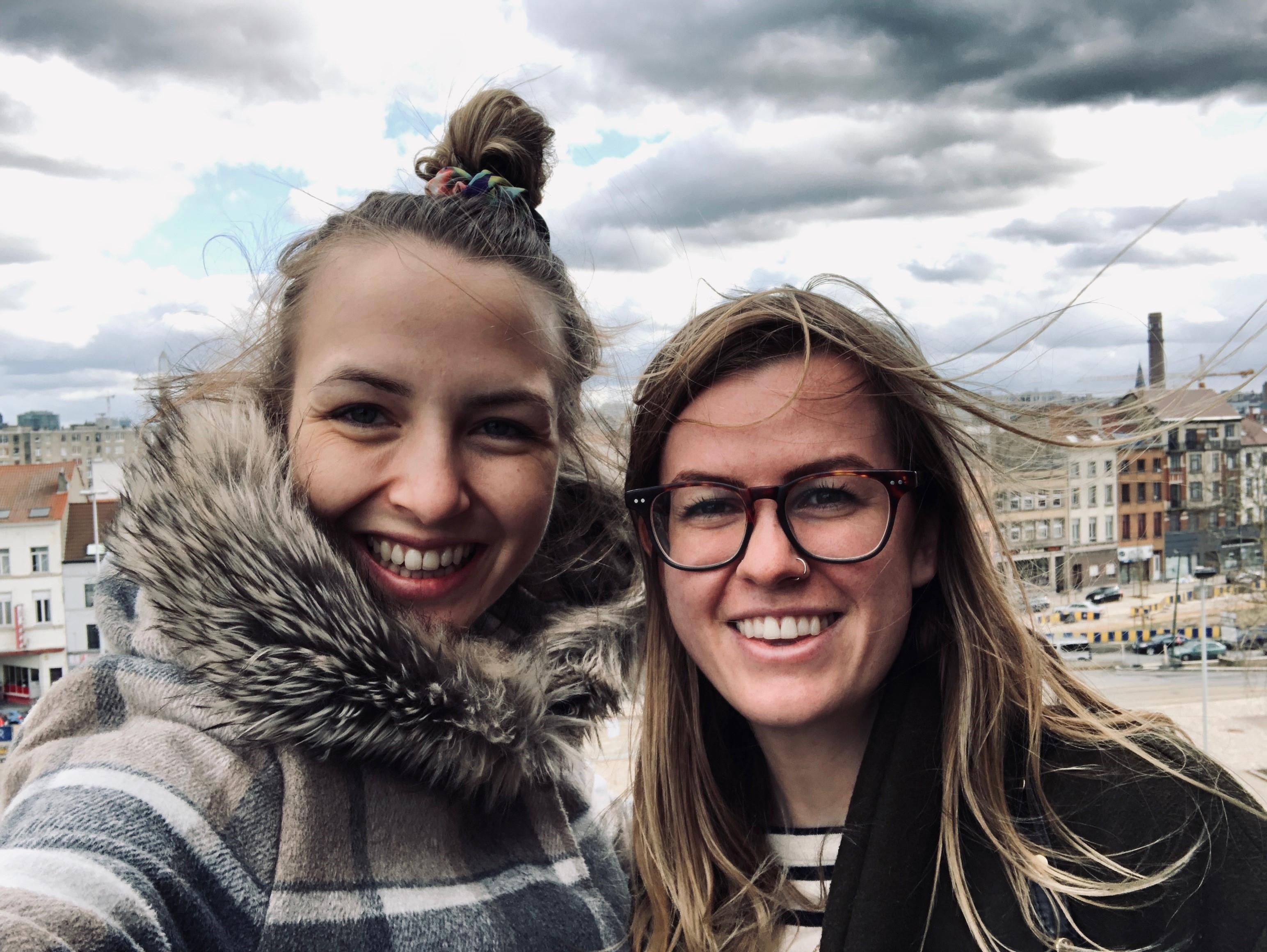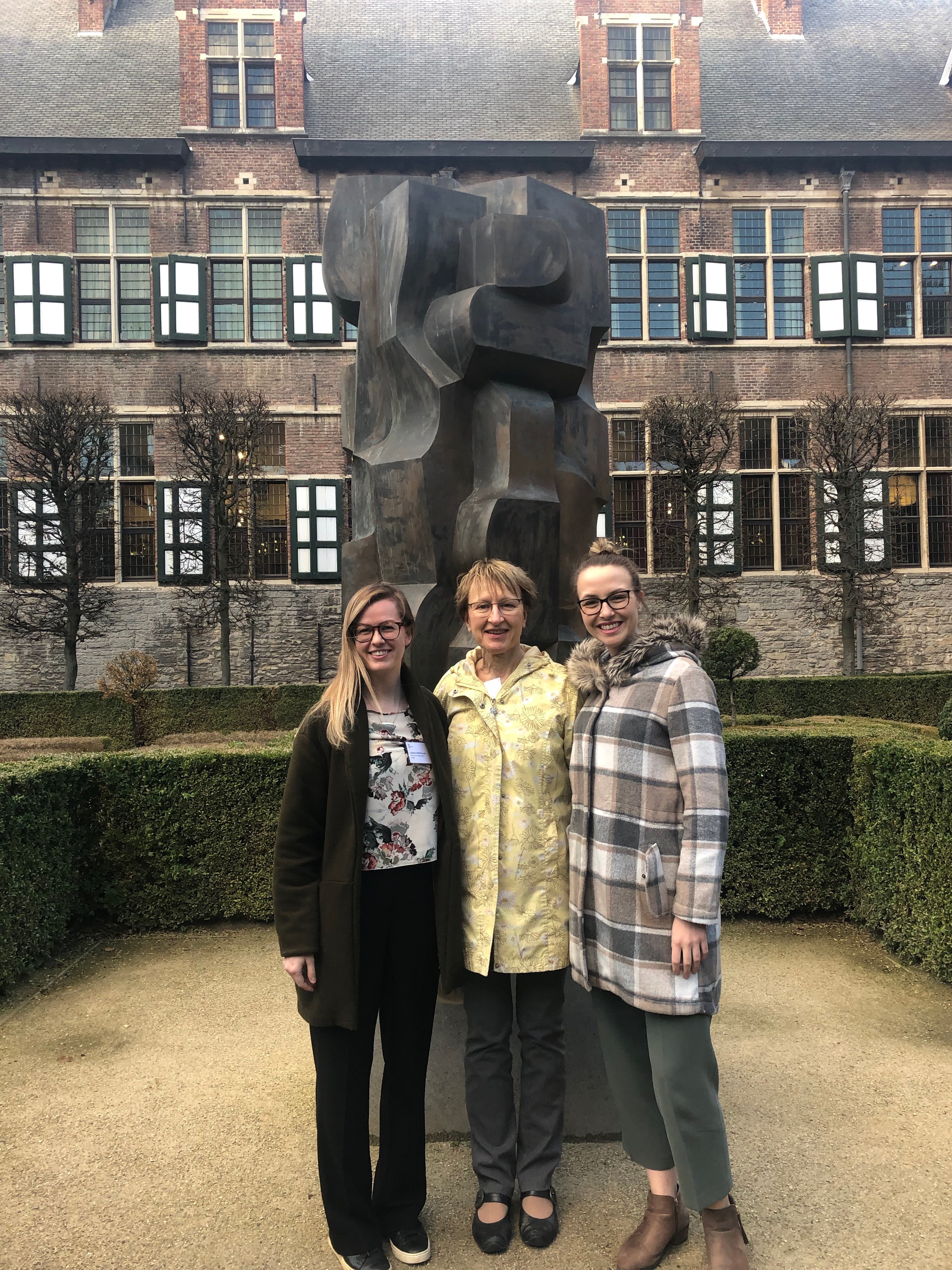
Medical students take research projects to Belgium
Hallo! (“hello” in Dutch, not just a major typo) Our names are Hope Fast and Cadence MacPherson and we are second-year medical students at the University of Saskatchewan.
By Hope Fast and Cadence MacPhersonIt is with great honour and excitement that we are sharing with you the accounts of our mid-semester Euro adventure to attend the Third International Conference on End of Life Law, Ethics, Policy, and Practice, in Ghent, Belgium.
As eager first years, we were scrolling through the list of Dean’s Summer Research projects and were instantly drawn to proposed projects by Dr. Lilian Thorpe on the topic of Medical Assistance in Dying (MAiD) in Saskatchewan. Although MAiD was legalized in Canada in June 2016, it is a novel and advancing topic in Saskatchewan medicine. We were keen to learn more about MAiD through a researchers’ lens.
Cadence’s research project focused on the perspectives of mental health professionals on MAiD for patients with mental illness as their primary reason for applying. Currently, patients with mental illness as their underlying medical condition are ineligible; however, this is being discussed at the federal level.
The purpose of Cadence’s research was to collect perspectives from mental health professionals in the Saskatchewan Health Authority about this potential eligibility criteria reform and to collect occupation specific opinions on the reform. Cadence also gathered suggestions to address possible psychiatric assessment and management challenges.
Hope’s research centered on gathering and evaluating perspectives from healthcare professionals about MAiD in Saskatchewan. The federal legislation and criteria that a patient requesting MAiD must meet are in place to protect both the physician performing the assisted death and the patient who is requesting it.
Physicians in Saskatchewan are not required by law to perform MAiD, assess a patient for eligibility for MAiD, nor to refer/give information about MAiD if it violates their moral conscience (conscientious objection), or if they do not consider themselves properly trained to safely provide it. The purpose of Hope’s research was to gather information on the attitudes of different clinical groups regarding MAiD, and to compile data about the level of education and involvement with MAiD by healthcare professionals in Saskatchewan.
When Dr. Thorpe informed us that there was an international end-of-life conference taking place in March, we readily submitted abstracts and were thrilled when we each received invitations to present our research. Before we knew it, we were on our first flight of the 17-hour journey to Belgium. Between planes, trains, and automobiles, we finally made it to the lovely city of Ghent.

The conference was attended by physicians, lawyers, policymakers, and PhD students who were all working towards the goal of educating themselves and improving end-of-life care in their given countries. It was truly surreal to be in the presence of so many influential and fascinating individuals. Over thirty countries were represented at the conference, with twenty five Canadian attendees, four of which were affiliated with the University of Saskatchewan.
The first morning of the conference set the foundation with plenary speakers discussing the status of MAiD in Europe, Australia, and Canada. For the next two and a half days, the conference was comprised of fascinating plenary and breakout sessions on many topics such as MAiD and mature minors/neonates, advanced directives, voluntary stopping of eating and drinking (VSED), and palliative sedation.
Some of our most valued learning moments took place between sessions when we are given the opportunity to network with the other conference attendees. Notable conversations were those with some of the first MAiD providers in Canada, Canadian nurses involved in MAiD and organ transplantation cases, Belgian pHD students who interviewed psychiatric patients that received MAiD, and Australian delegates who advocated for the legalization of MAiD.
After productive and long days of discussing end-of-life care, we were entertained in evenings with a reception at the historic Ghent City Hall and a private dinner and visit to the Ghent Museum. Through these events, we embraced Belgian culture and gained insight into the historical gossip of Ghent. Moreover, we spent our spare time exploring the cobblestone streets and indulging in some of Belgians finest treats.
Sadly, an end-of-life care conference must also end. So, we bid “vaarwel” to the fellow attendees with plans to stay in touch and we began our travels back to Canada. It felt very surreal to wake up in Belgium and then fall asleep in Saskatoon with our alarm set for our 9 AM Advanced Communications session scheduled the following morning.
We learned so much over the course of the conference and were inspired to continue learning and contributing to the conversations on end-of-life care. We are already planning for the next course of action in our research and are hoping to fit the 4th international conference into our 2021 schedules.
Our time in Belgium will undoubtedly impact our future training and practices as we share our knowledge on end-of-life care and advocate for patients.
Dank je!
Hope Fast and Cadence MacPherson
